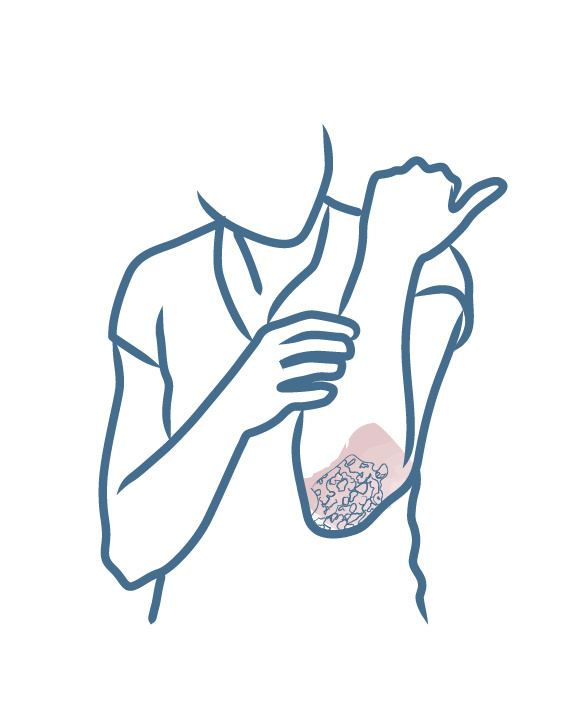-
Your concerns
Our articles to help you gain a better understanding
-
Our solutions
-
Ducray Dermatological laboratories
Our articles to help you gain a better understanding

And what if managing your psoriasis involves changing your diet? This is a popular subject on many sites and forums, and in magazines, books, etc. Among the most common themes are eating foods rich in vitamin D and omega-3, avoiding gluten and/or dairy products and adopting a Mediterranean diet. It can be difficult to wade through all this information and to separate fact from fiction when you have psoriasis, and you are ready to do anything to get rid of the unsightly plaques or to relieve the pain if your joints are affected.
Some patients are willing to do anything, even follow "special psoriasis" diets, no matter how dubious, sometimes putting themselves at risk of nutritional deficiencies. Just because a diet improved the psoriasis of a complete stranger that you read about on the internet, doesn't mean you should start eating differently! This particularly applies to children and teenagers with psoriasis: a lack of proper nourishment could stunt their growth and development.
If you have psoriasis, are there any foods you should avoid? Foods you should eat more of? The link between diet and psoriasis is a matter of interest to scientists around the world and has already been the subject of several studies. Some have focused on dietary changes (e. g. adopting a gluten-free diet) to improve psoriasis, but this has not produced any spectacular or definitive results. Nonetheless, a varied and balanced diet is essential to improve your overall health, whether or not you have psoriasis.
While there is certainly a connection between overweight, obesity and psoriasis, it is not fully understood. Patients with psoriasis are often overweight, but little is known about whether this is a causative factor (fat promotes inflammation) or a consequence (the general discomfort associated with psoriasis disrupts dietary balance, leading to the overconsumption of foods that are too fatty, too salty or too sweet). In overweight or obese patients, weight loss often leads to an improvement in their psoriasis. To conclude, it is important to eat a healthy diet and avoid being overweight, especially if you have psoriasis.
Psoriasis-prone skin

Skin prone to stubborn dry plaques
NEWSLETTER
Dermatological expertise
To better understand your skin and hair, discover our exclusive content and innovative care products designed to improve your quality of life..